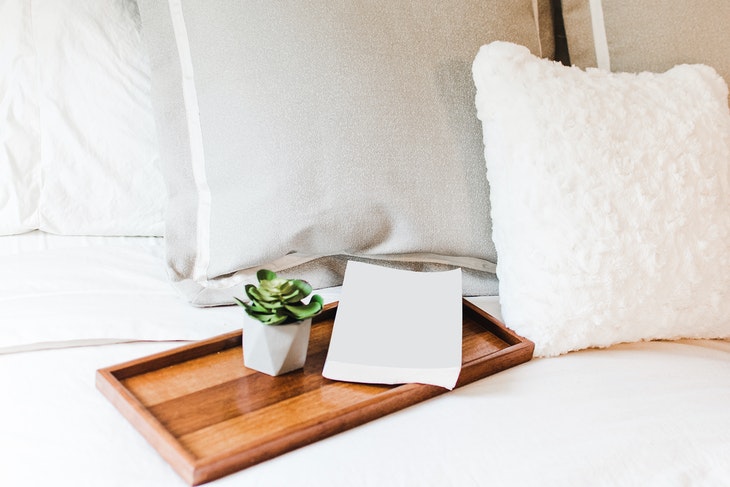
With lockdowns in place worldwide, it’s often difficult to get a good night’s rest in this time of uncertainty.
Too often, we look towards technology, therapy,or drugs to solve our snoozing problems. People spend money on psychiatric sleep treatment, medication, and often consider buying an essential best cooling mattress or anti-snore pillows.
All of this has proved to be beneficial in combating poor sleeping habits. However, to overcome this problem, we need to look deeper into its origins.

Which Lockdown Challenges Promotes Poor Sleeping Habits?
It’s common knowledge that millions of people had insomnia long before Covid19 struck us. However, the lockdowns associated with this pandemic have created an array of new challenges that promote this problem. These are discussed below.
Disrupted Daily Routines
Current restrictions have entirely turned our daily routines upside-down. This results in the following:
? The difficulty of adjusting to a new or lack of schedule.
? Being confined to your home may affect your circadian rhythm.
? The lack of typically fixed anchors, such as clocking in at work, makes it harder to keep track of time.
? Oversleeping in the mornings make it more challenging to wake up on time in the long run.
Stress and Depression
Along with the pandemic comes stress. Fear of catching the virus and economic difficulty is affecting everyone, bringing with it anxiety and stress. As a result, our minds keep racing, causing us to toss and turn, thus disrupting our sleep.
Work-from-home obligations and many social issues further promote this problem. Isolation can bring about depression. This, combined with stress, has the potential of causing severe sleeping problems.
Too Much Screen Time
Social, recreational, and work-related restrictions inadvertently result in excessive screen time, which has a critical impact on sleep. Apart from overstimulated brain waves, the blue light emitted by screens can suppress the production of melatonin. This hormone is essential to helping our bodies know when it’s time to sleep and wake up.
Fatigue Related to Stress
Chronic stress can lead to many physical symptoms; among these is stress-related fatigue. This is defined as a near-constant feeling of tiredness, developed over time, diminishing your energy, concentration, and motivation, regardless of whether you receive an adequate amount of sleep.
The Importance of Sleep During This Time of Crisis
According to experts, sleep is a critical biological process essential to both our physical and mental health. Getting high-quality sleep is vital in improving all aspects of our wellbeing. Some of its wide-ranging benefits are:
? Strengthening your body’s natural defenses.
? Enhancing our brain activity, helping us to stay sharp.
? Heightening our mood
? Increasing energy levels.
? Improving overall mental health.
Helpful Tips for Getting a Good Night’s Sleep
Consistent restless nights can have a devastating effect on your wellbeing. The professionals recommend that a person gets between seven and nine hours of quality sleep daily. Below are some tips to help improve your sleeping habits.

Exercise and Diet
It’s essential to take full advantage of your daily allocated period to go outside. Be sure to use this effectively and develop an exercise routine for the same time every day. Being outdoors is crucial in keeping your circadian rhythm in balance. It helps to produce melatonin, makes you feel tired, and prepares you for bed-time.
Making a healthy diet part of your lifestyle is also known to promote good sleep. Be sure to have a light dinner early in the evening and drink enough water. Bad eating habits can cause indigestion, and dehydration may result in snoring. Both of which can be disruptive to your sleep.
Proper Sleeping Routine
Establishing a proper sleeping routine promotes your circadian rhythm, which helps you get a good night’s rest. It’s essential to set up a schedule by going to sleep and waking up at the same time every day. It’s also crucial to try and avoid sleeping in over weekends as it may make it harder to wake up on Monday mornings.
Reduce Your News Intake
Taking in too much information and news, especially about the pandemic, may increase your stress and anxiety levels. Make an effort to limit your time spent watching the news and preferably do this in the morning. This will give you enough time to absorb the details before you go to bed.
Use Relaxation Techniques
Making breathing and relaxation techniques part of your daily routine does wonders to help improve your sleep. There are many mindfulness and meditation apps available to download on the internet.
Take Caution With Naps
Although a short power nap in the early afternoon may be helpful to most people, longer slumbers can affect your sleep at night.
Keep a Journal
Keep a pen and notepad on your bedside table. If your thoughts are keeping you up at night, try writing them down. This helps you to organize your thoughts and prevent them from building up in your head. It may also assist you in falling asleep.
Stay Healthy, Sleep Well
Life is full of uncertainty and surprise. Just because something is overemphasized, it doesn’t mean it should rule our lives. Sure, we don’t know the outcome, but we also can’t control it. So, let’s instead focus on that which we can control.
As discussed earlier, sleeping well is vital in maintaining a healthy lifestyle. By implementing the steps mentioned above, you’ll start working toward a better sleeping pattern, which will make you feel less tired and more positive.



















